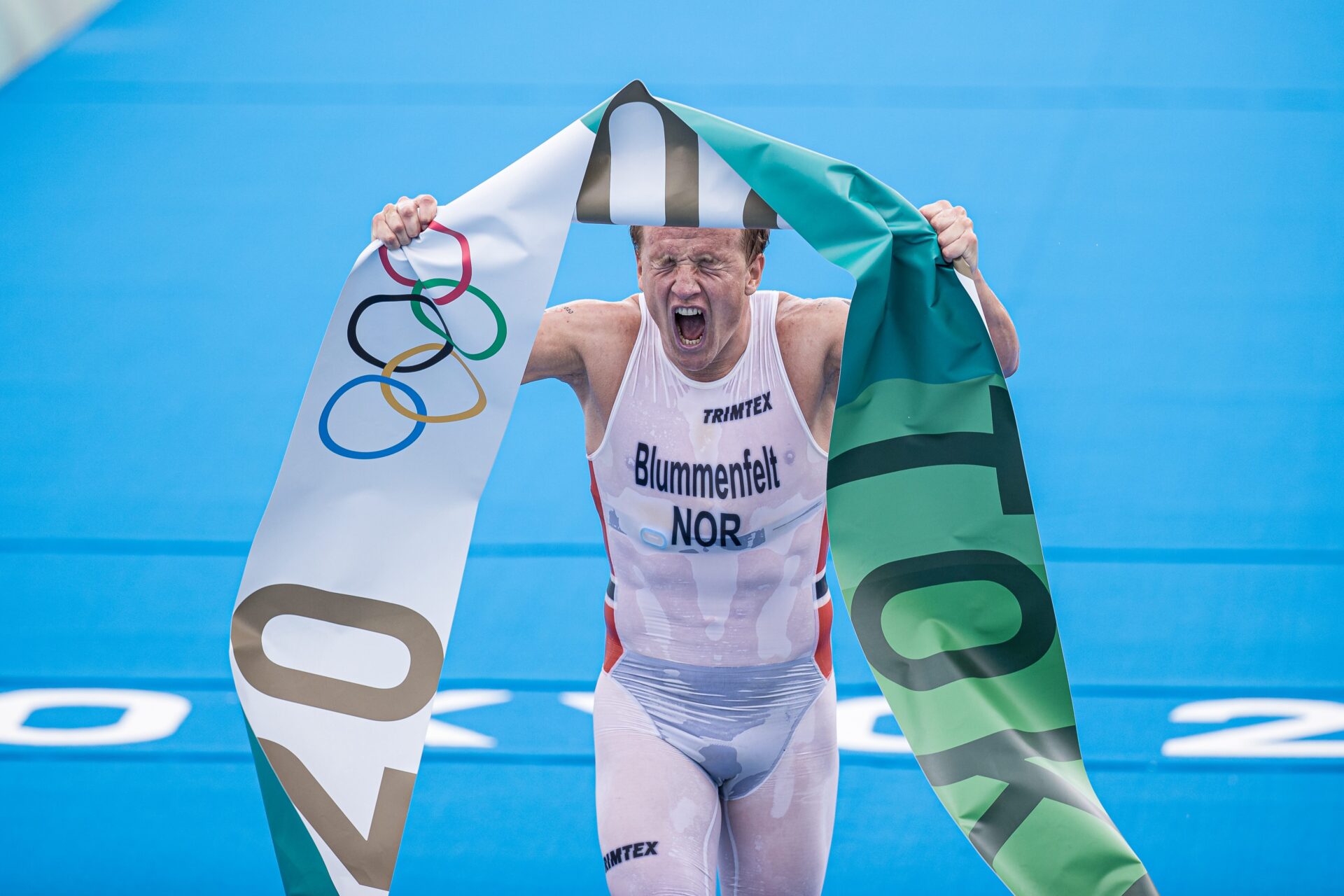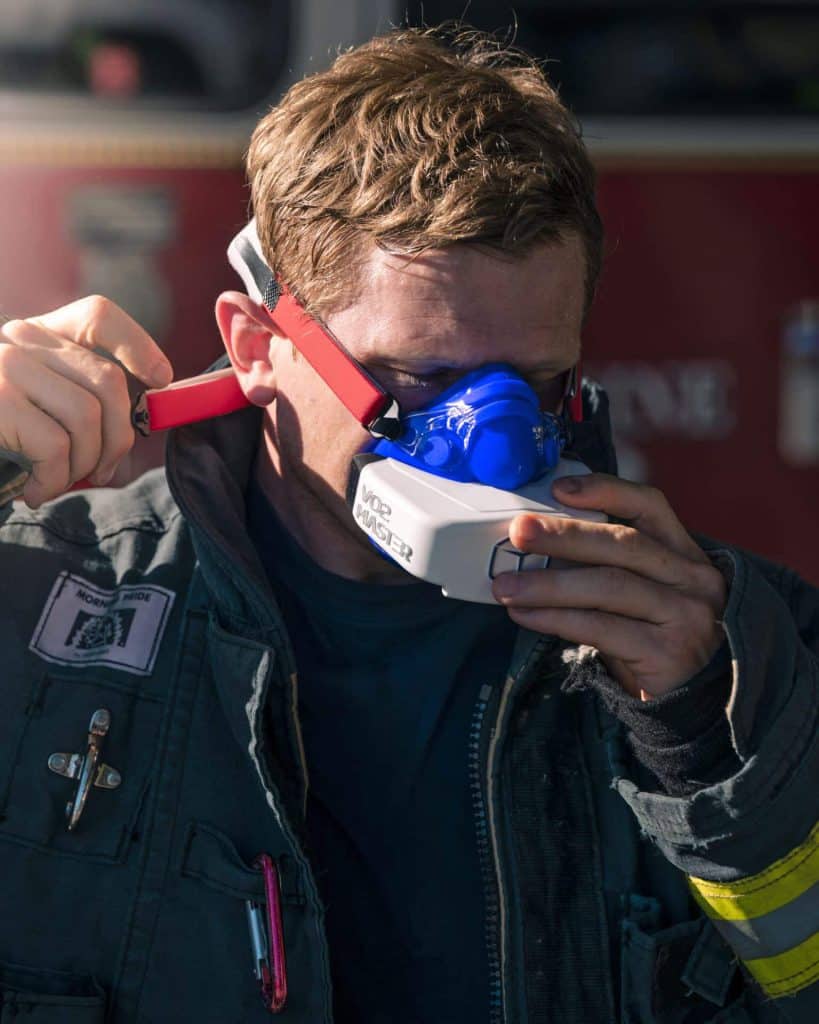The Norwegian Method: Kristian Blummenfelt on Success, Legacy, and Paris 2024
In this first episode of TNW's 2nd season, Dr. Lipman speaks with Olympic gold medalist, Kristian Blummenfelt on his journey to the Olympics. Here are 7 takeaways from the episode.

The Norwegian Method Podcast, presented by Santara Tech, is back with a brand-new season.
In the first episode of season two, host Dr. David Lipman speaks with Olympic gold medalist and three-time World Champion triathlete Kristian Blummenfelt.
Together, they explore Kristian’s entry into triathlon, his journey to the Olympics, and the process of switching from long-course to short-course.
Here are 7 essential takeaways.
1. The Norwegian Method: Triathlon Wasn’t Where it All Started for Kristian Blummenfelt
Many times, athletes have to find what they’re good at, and the same was true for Kristian in the beginning.
As a child, he swam a lot—twice a day—but it was difficult when he saw no progress in his personal best times between the ages of 11 and 13 while still growing.
He also feels it was likely he had mono during that time.
His coach noticed his commitment—he was always the first into the pool and the last one out—and eventually recommended trying other options.
Kristian admits that he acted like a professional but didn’t really perform at the swim meets.
He eventually refocused his energy on running and found that it was much easier for him than swimming. He was soon able to reach the national level.
Then, in 2009, Kristian had the opportunity to sign up for a sprint-distance triathlon with 32 other athletes. He won that race and a month later was contacted to join the first-ever youth national team in the region.
This is where he found his love for training and racing.
2. The Importance of Winning at the Paris Olympics
One of the things Kristian finds most exciting about preparing for the Olympics is the idea of returning to short-course racing and proving he can repeat his past successes.
There’s an inherent thrill in coming back and showing that he can compete against the younger generation and tackle new challenges.
This time around, it’s more a team effort and performance than it was in Tokyo. There are a lot more people involved, and he’s not just performing for himself but for the whole team.
3. Data, Testing, and the Transition Back to Short Course
One of the most drastic improvements Kristian has experienced in training for the Olympics this time around is the unprecedented access to data.
He believes data makes it easier to transition between race distances, whereas in the past, you would have to experience it for yourself—you would go to Kona, fail once, maybe twice, and then maybe nail it on your fifth try.
But today, you can dial in your body exactly the way the research is telling you to. As a result, less time is needed to switch between disciplines because you can now use all the knowledge that’s out there.
By combining data with the experience of what works best for an athlete, the transition from long-course triathlon training back to short-course training is much easier than it used to be.
4. The Pressures of Training with a Bigger Team
While training with a bigger team does add an element of pressure, Kristian explains that he felt more pressure in the earlier days of his career.
Back in 2018 and 2019, he was signed with sponsors for the first time in his life, but he wasn’t performing as well as he had the year prior. He wanted more for himself but was grappling with concerns that his sponsors might drop him.
Fast-forward to 2024, and things are different. Many of his sponsors have been with him through the Olympic gold medal win and the Ironman World Championships, and it’s more about what they’re all creating together.
5. How Training is Going Right Now
As the Olympics quickly approach, Kristian is feeling better than ever. Coming off a number of great training camps, he recently clocked his highest VO2max ever—a staggering 10% higher than his previous best.
Despite a few small tweaks and niggles that caused him to temporarily adapt his training regimen, he’s enjoying his swim training, getting quicker with his runs, and achieving better results in many facets than he experienced in his last Olympic training run.
With only a few weeks to go, Kristian is feeling dialed in on Olympic-distance racing.
6. Deciding on Testing Frequency
Some people get VO2max tested two or three times per year. But Kristian and coach Olav look instead at where it fits into the program—whether it’s when they get home from a race, between training camps, or in other scenarios.
They opt to do it more often than most triathletes because it gives them an idea of their current state and allows them to set goals for what they want to work on at the next camp.
7. Kristian’s Mental State as the Games Approach
Adopting a true championship mentality, Kristian is approaching Paris 2024 humbly.
He has tailored his mindset to forget about his past victories to inspire a refreshed hunger and a profound desire to win.
When you see him standing at the start line on race day in Paris, he’ll be treating it as the biggest race of his life—and a victory he wants more than anything.
If you’d like to learn more, you can listen to episode 2 in its entirety. You can also find brand-new video content, news, and updates from The Norwegian Method on the VO2 Master blog.
